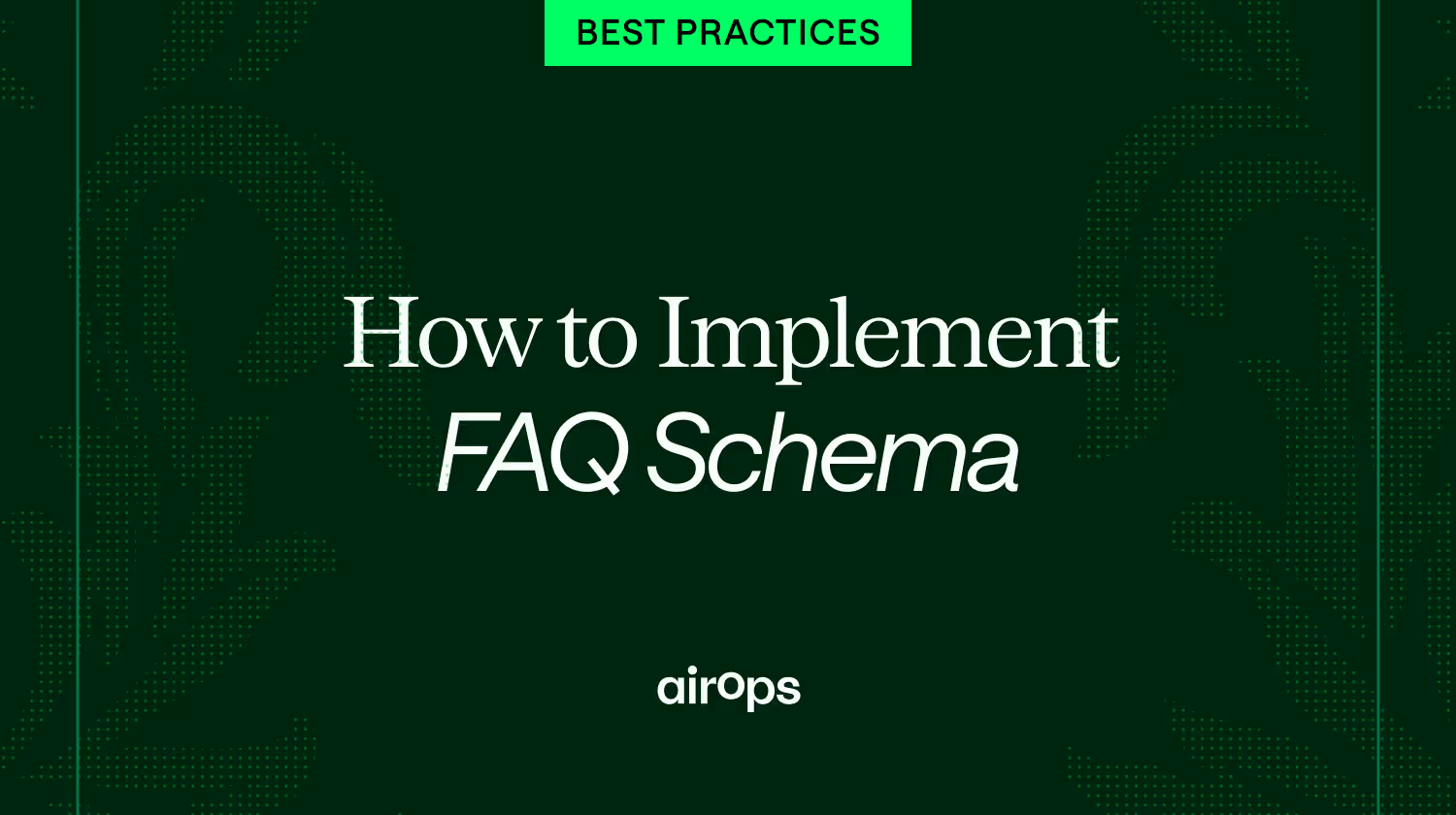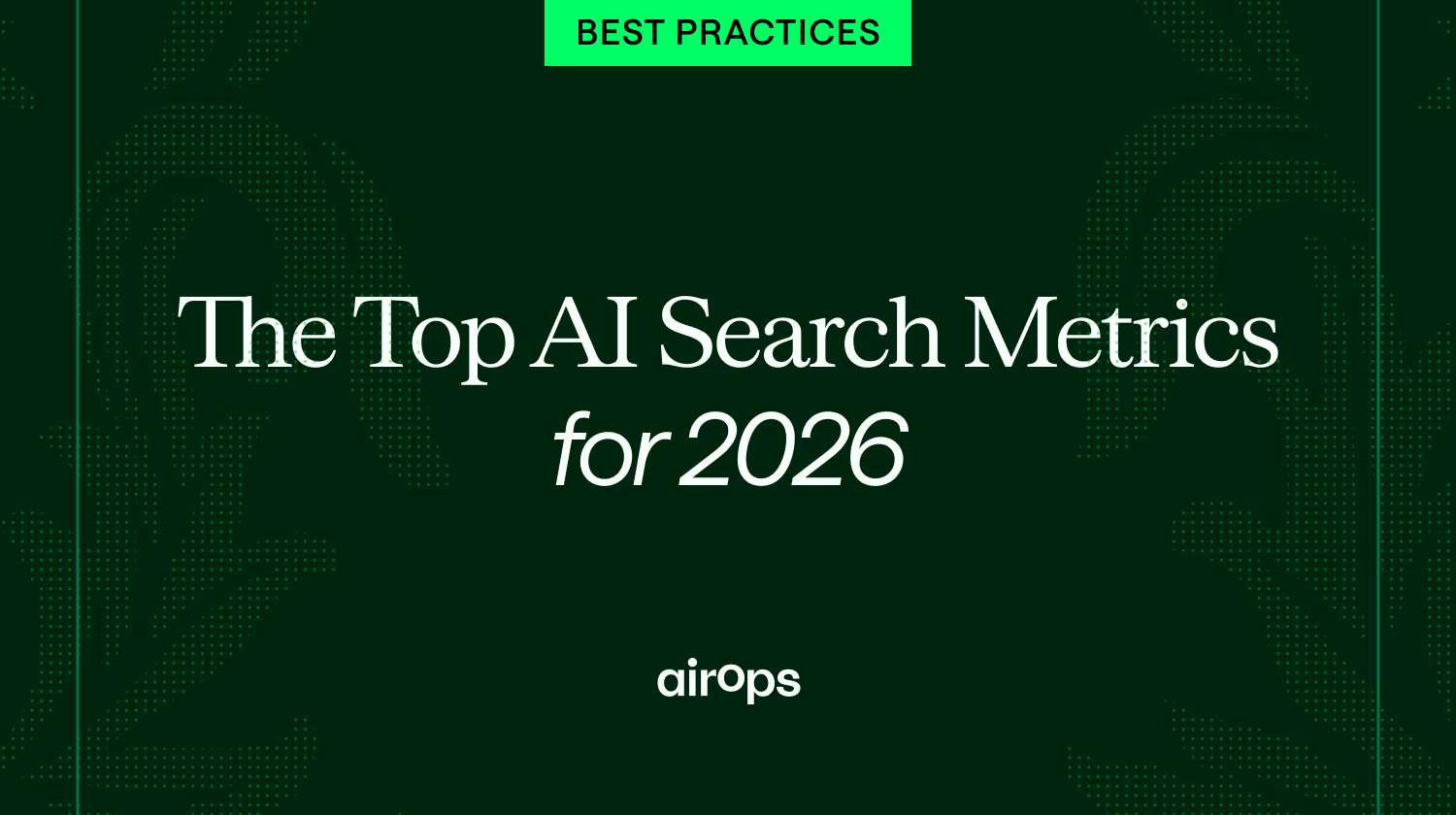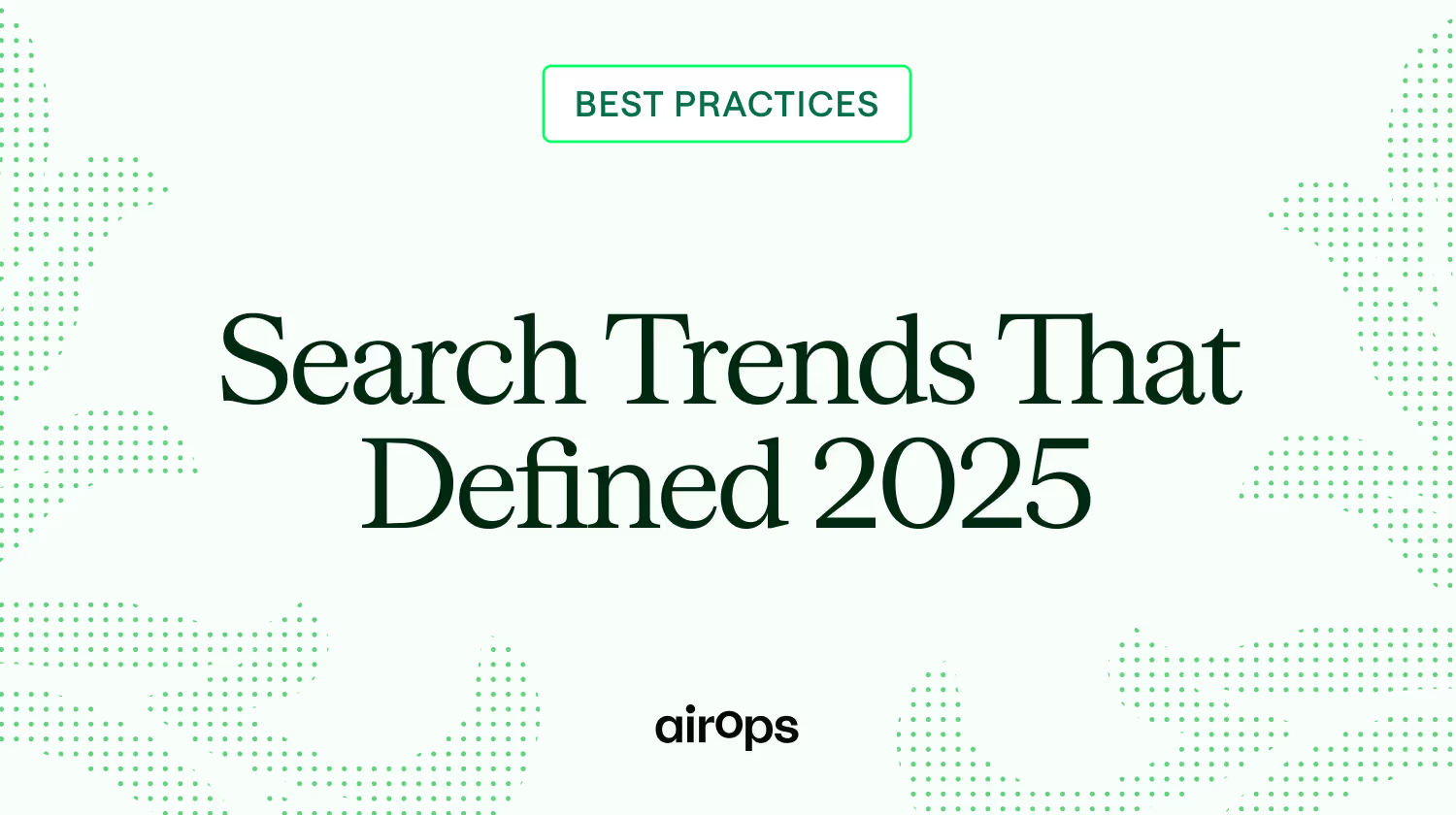How to Implement FAQ Schema: Best Practices & Examples

- FAQ schema markup is structured data that enables search engines to display your site’s questions and answers directly in search results.
- JSON-LD is the recommended format for FAQ schema, making implementation simple and increasing eligibility for rich results.
- This guide provides a working JSON-LD example, clear setup steps, best practices, and advanced use cases.
Structured data has become essential for businesses looking to improve search visibility and user experience.
Among the most effective implementations is FAQ schema markup, a method that enables search engines to display question-and-answer content directly in results. This approach enhances discoverability and increases engagement by providing users with immediate, relevant information.
While the concept may seem straightforward, proper implementation requires precision. Schema must be correctly formatted, aligned with SEO best practices, and compliant with search engine guidelines to yield meaningful results. A well-executed FAQ schema can improve click-through rates, reinforce authority, and streamline customer interactions.
Understanding how to structure and apply FAQ markup is key to maximizing its benefits. This article outlines a clear example, offering practical insights into creating schema that drives measurable impact.
What is FAQ Schema Markup?
FAQ schema markup is a type of structured data that allows search engines to feature your website’s questions and answers in search results. FAQ schema improves visibility, increases click-through rates, and enhances the user experience by surfacing quick answers. JSON-LD (JavaScript Object Notation for Linked Data) is Google’s preferred format for implementing FAQ schema due to its simplicity and maintainability.
Benefits of Using FAQ Schema
FAQ schema is a proven strategy for increasing search visibility, improving user experience, and capturing more qualified traffic from both traditional and AI-powered search engines.
Enhanced SERP Visibility
FAQ schema enables your content to appear as rich results in search engine results pages (SERPs). These visually prominent listings attract more attention, increase visibility, and often lead to higher click-through rates.
Improved User Experience
FAQ schema provides direct answers within search results, allowing users to access relevant information quickly—without extra clicks. This increases user satisfaction and builds a stronger brand impression.
Voice Search Optimization
FAQ schema supports voice search by structuring concise answers that are more likely to be selected by voice assistants like Google Assistant and Alexa. This positions your content for broader reach as voice-driven queries grow.
Reduced Bounce Rates
By surfacing answers immediately in search, FAQ schema helps users find what they need before clicking through. This reduces dissatisfaction and keeps users engaged with your content.
AEO and AI Search Visibility
For businesses prioritizing Answer Engine Optimization (AEO), FAQ schema increases your chances of being cited in AI search results, expanding your brand’s visibility across emerging search experiences.
FAQ Schema Markup Example (JSON-LD)
FAQ schema uses a structured format to help search engines understand and display FAQs. Below is a valid JSON-LD example:
Below is a simplified description of the key components of the FAQ schema markup above:
@context: Specifies the schema context, indicating that this markup follows the Schema.org vocabulary.
@type: Defines the type of content; in this case, it is an "FAQPage," indicating that the content is structured as a Frequently Asked Questions page.
mainEntity: This element contains an array of questions and answers that make up the main content of the FAQ page.
@type: Within each question, this specifies the type of content; here, it is "Question," indicating that the content represents a question.
name: The text of the question being asked.
acceptedAnswer: This element contains the answer to the question.
@type: Specifies that this content is an "Answer," indicating that it provides a response to the corresponding question.
text: The actual text of the answer provided for the question.
This structure helps search engines understand and display your FAQ content effectively in search results.
How to Implement FAQ Schema Markup
Now that you have a better understanding of FAQ schema markups, here’s how you can implement these into your website and blog pages.
Choose the Right Format (JSON-LD or Microdata)
You have two format options: JSON-LD or Microdata. JSON-LD (JavaScript Object Notation for Linked Data) is the recommended format by Google, as it's easier to implement and maintain. It allows you to implement schema markup without modifying the HTML content of your page.
Microdata, on the other hand, involves adding schema markup directly to the HTML tags of your FAQ content. While this format is still valid, it can be more time-consuming and complex to implement, especially for beginners.
Identify FAQ Content on Your Website
Identify the web pages on your website that contain frequently asked questions and their corresponding answers. These pages typically have a dedicated FAQ section or a list of questions and answers related to your products, services, or industry.
Make sure your FAQ content is well-structured, with clear questions and concise answers. Each question should be followed by its respective answer, and users and search engines should easily read the content.
Use the AirOps FAQ Schema Generator
Creating FAQ schema markup manually can be time-consuming and prone to errors. The AirOps FAQ Schema Generator streamlines this process, allowing businesses to quickly generate structured data that enhances search visibility and improves SEO performance.
Simply input your questions and answers into the intuitive interface, and AirOps will instantly generate JSON-LD code that meets Google’s structured data guidelines. Optional fields let you add additional context, ensuring your markup is optimized for search engines and users alike.
For businesses seeking a scalable, high-impact approach to SEO, AirOps goes beyond simple schema generation. With advanced tools designed for content strategy, automation, and optimization, AirOps empowers teams to create, manage, and deploy high-quality structured content at scale. Start for free or integrate it seamlessly into your workflow for lasting results.
Add Schema Markup to Your Website
The most common place to add the code is within your HTML document's <head> section.
Copy the generated JSON-LD code and paste it into your website's HTML, ensuring it's placed between the proper script tags. If you're using a content management system (CMS) like WordPress, you can install a plugin to add custom scripts to your website's header.
Test Your Schema Implementation
Once you've added the FAQ schema markup, always test your implementation to ensure it's working correctly. You can use Google's Rich Results Test tool to validate your schema markup.
Enter the page URL containing your FAQ schema or paste the HTML code directly into the tool. Google will analyze your page and provide feedback on any errors or warnings related to your schema implementation. If the test shows no errors, your FAQ schema is implemented correctly and eligible for rich results.
Best Practices for FAQ Schema
Adhering to best practices ensures your FAQ schema remains eligible for rich results and delivers maximum SEO impact.
Display all FAQ content on the page: Only add FAQ schema to questions and answers that are clearly visible to users—not hidden or dynamically loaded.
Avoid promotional or irrelevant FAQs: Do not use FAQ schema for marketing, sales, or advertising content. Focus on providing genuine informational value.
Keep each question and answer unique and precise: Write clear, specific FAQs that directly address user needs. Avoid duplicate or generic content.
Use FAQ schema selectively: Apply FAQ schema only to pages where FAQs are essential to user intent, not across your entire site.
Update FAQs regularly: Refresh FAQ content to ensure accuracy, relevance, and continued eligibility for rich results.
Following these guidelines keeps your schema in line with Google’s official recommendations and helps maximize both visibility and user engagement in search
Is FAQ Schema Still Relevant for SEO?
FAQ schema markup continues to be one of the most effective strategies for increasing search visibility and earning rich results in both traditional and AI-powered search experiences.
By following best practices and maintaining well-structured, up-to-date schema, you ensure your content is favored by search engines and answer engines alike. Implementing FAQ schema remains a high-impact SEO tactic for brands that want to provide direct answers and capture more qualified traffic.
How AirOps Supports Scalable FAQ Schema Implementation
AirOps empowers teams to automate, manage, and optimize FAQ schema at scale.
With the free AirOps FAQ schema generator and AI-powered workflows, you can quickly create, deploy, and maintain structured data across your site—no technical expertise required.
Streamline your structured data strategy and ensure your content is ready for both search and AI-driven visibility.
Read to learn how AirOps can help your team future-proof your SEO content? Book a strategy session today.
Win AI Search.
Increase brand visibility across AI search and Google with the only platform taking you from insights to action.
FAQs
Does adding FAQ schema guarantee rich results in Google?
No. FAQ schema makes your content eligible for rich results, but Google ultimately decides whether to display them. Eligibility depends on correct implementation, visible on-page content, compliance with Google’s structured data guidelines, and overall page quality.
Can I use FAQ schema on any page, or only dedicated FAQ pages?
You can use FAQ schema on any page that contains a clearly visible list of questions and answers, including blog posts, guides, and product pages. What's important is that each question-and-answer pair appears in the main content and provide genuine informational value.
How many questions should I include in FAQ schema on a single page?
There is no fixed limit, but best practice is to include only the most relevant questions that directly support the page’s primary topic. Adding too many or loosely related questions can reduce clarity and may affect eligibility for rich results.
Get the latest on AI content & marketing
Get the latest in growth and AI workflows delivered to your inbox each week
.avif)




